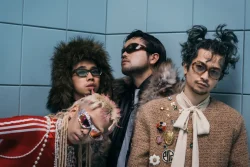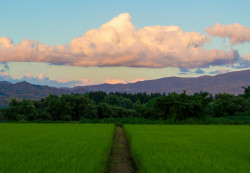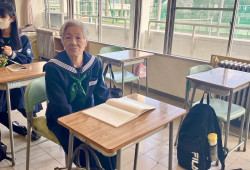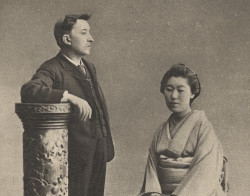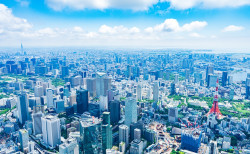
Originally published on metropolis.co.jp on May 2013

I arrived in Japan having been advised: begin with The Inland Sea. As if it was a kind of duty American Millenials are bound to, I responded with willful ignorance. If Donald Richie was the “right” author to read during expatriation, I would read anything else.
I spent my first two weeks in Japan traveling south from Tokyo to visit friends. When I later read The Inland Sea, I discovered I had unwittingly traced much of Donald Richie’s route with near-perfect fidelity. Since then, I retain the sense that expatriate writers in Japan don’t choose Donald Richie for their patron saint. They touch down at Narita having already received him.
Richie’s legacy is prismatic. Most will remember him as a bridge between cultures, an elucidator of the inscrutable Japanese psyche. But I don’t think Richie ever felt Japanese people needed elucidating. He treasured the opacity he sometimes perceived in them and knew it belonged foremost to his manner of perceiving. Still others—perhaps cloistered in academia where the bulk of Western thought about Japan now occurs—will remember him as the best-read of the “occupation heirs” who populated postwar Japan’s literary scene. They will wrongly contend that the distinguishing feature of his lifework was the geostrategic privilege that permitted it: that Donald Richie was an occupier first and foremost. Never mind that he was as warmhearted, self-conscious and human an observer of the occupation as any two nations could have hoped for.
Richie often remarked upon the clarity afforded him by his ethnically-imposed outsider status in Japan. He called himself a “citizen of limbo… the most democratic state that there is.” In light of that sensibility,I have always regarded his writing as unburdened—he drifted in the vacuum between cultures, weightless compared to the rest of us. In the process, he revealed the nature of our responsibilities as expatriates: not to interpret individual cultures or render them familiar to each other, but to move beyond their constraints into a better realm of thought.
I choose to think of Richie’s life and writings as testimony disputing the very notion of clear cultural boundaries; boundaries that Richie knew were precious, but also often porous or illusory.
Do we know as much? Do we understand what we might gain—not just for ourselves, but also for our respective cultures—by living, thinking and writing as expatriates in Japan? Donald Richie’s legacy, after all, is not to be found in the books he wrote, in the speeches he delivered or in the Japanese films that might never have transcended the archipelago had they not been propelled by his pen and his ardor. It’s closer by. We are his legacy: several generations of expatriates occupying the limbo whose imperceptible boundaries he eloquently described, privileged with the opportunity to emulate his clarity and weightlessness.
We lately squander that opportunity. English-language print publication in Japan isn’t long for this world, and it should therefore surprise no one that the talent pool among expatriate writers can seem shallow. Perhaps little can be done about this—Westerners haven’t been afraid of Japan since the bubble burst, and they would rather read about China now. But that doesn’t explain why The Japan Times (Richie’s longtime patron) has invited the International Herald Tribune to demolish what little remains of its mandate for independent reporting. It doesn’t explain why academia has relegated literary translation to extracurricular activity—thereby removing the sole remaining career incentive for aspiring translators.
Such shortcomings matter because they reflect our ability to address ourselves to the tasks of our era. Donald Richie arrived in Japan bearing a preternatural understanding of the moment he’d been called upon to inhabit and the work it would demand of him. His was the postwar era. Buoyed by an ongoing US fascination with Japan, a subsequent generation of writers and thinkers later addressed themselves to equally trenchant work during the Bubble Era, when Emperor Hirohito’s death was the signal moment.
Our generation of US expats must live, think and write in the 3/11 era, which we have been asked to do without some of the economic and institutional advantages enjoyed by our predecessors. Yet ours is perhaps the most important era of all, for its outward appearance of peace. Much as an aged Donald Richie identified the accumulating inhumanity of our age in Tokyo’s physical ugliness, we must identify the corresponding wounds that have accumulated on our host society and its spirit. We are equipped to do so because of where we live—in the clear-eyed space between two troubled nations and their respective cultures. And along the path Richie laid for us.
